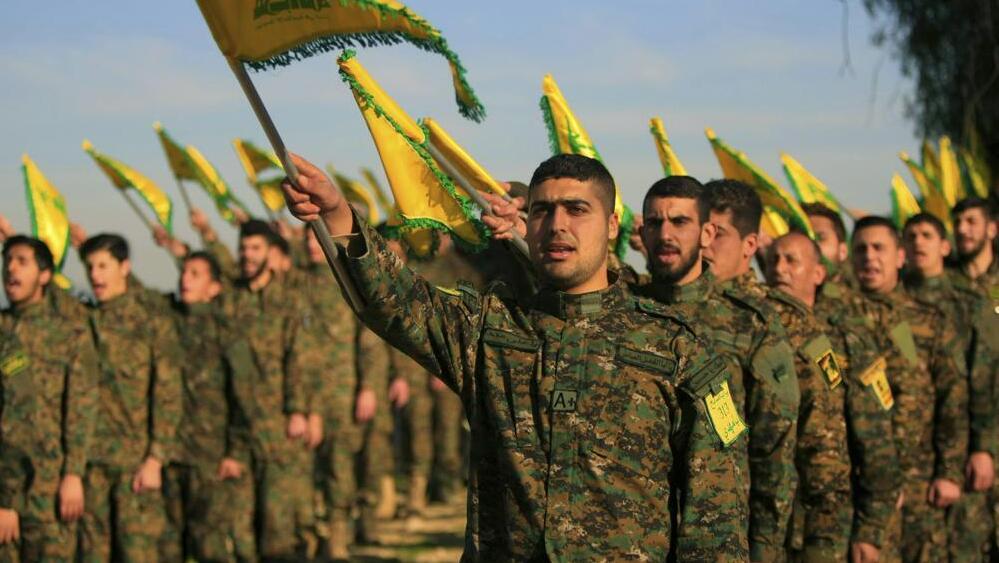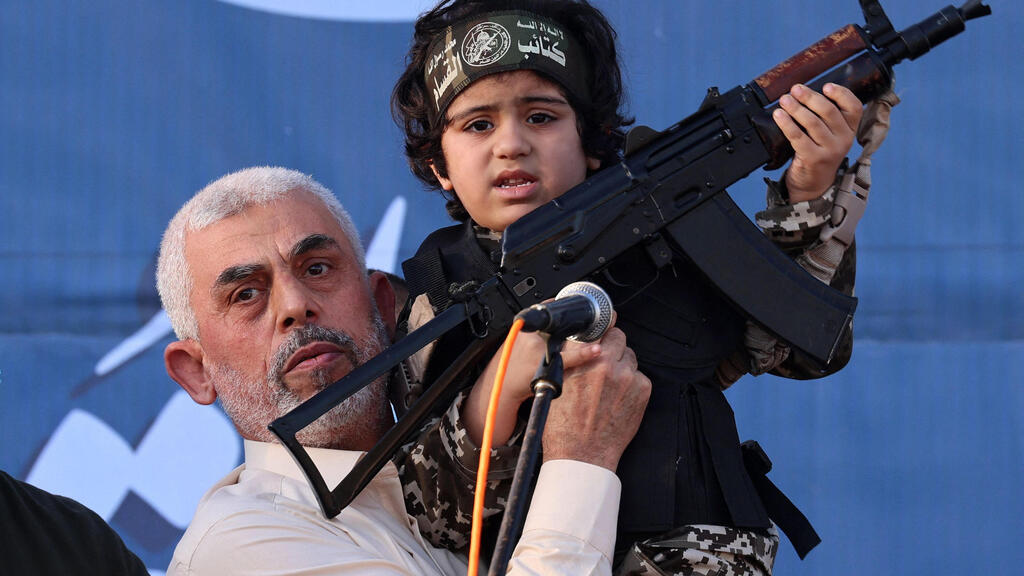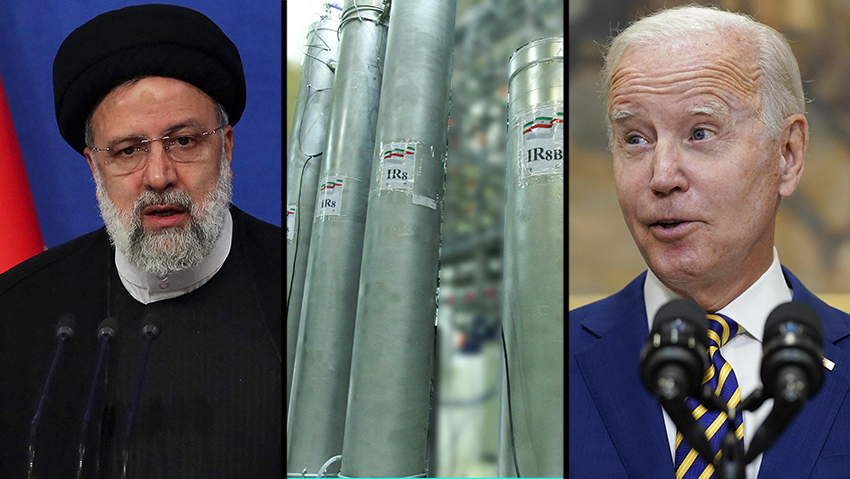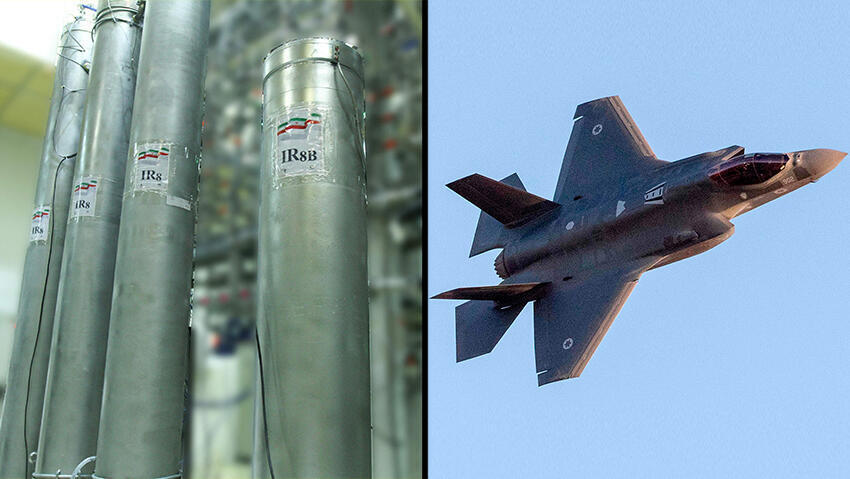Getting your Trinity Audio player ready...
The negotiations between the United States and Iran on the nuclear agreement involve a fundamental imbalance between the parties.
U.S. President Joe Biden and his administration evaluate the regional reality through the prism of the political reality in America. Their horizon does not stretch beyond the end of the current Biden presidency. Therefore, from the administration's perspective, preventing Iran from arming itself with nuclear weapons in the coming years is a goal worthy of pursuing.
The Ayatollah regime in Tehran, however, has a long-term strategic goal – the achievement of Iranian hegemony in the Middle East followed by its transformation into a global power at the help of the Muslim world thanks to its tremendous military power.
The Iranian leadership never loses sight of its long-term goals and has the utmost patience in achieving them. Iran understands the need to make concessions in the short-term in exchange for bringing it closer to its long-run goals.
Israel for its part, must preserve its existence both in the long-term, ensuring the security of our children and grandchildren, and in the short-term.
Even an agreement with wording that would be "good for Israel" would not deprive Iran of nuclear capabilities in the future. It only postpones the project's realization for several years, in the best-case scenario. With an agreement or even without, Iran will have billions of dollars in funding to promote its regional takeover, built on militias armed with missiles that could conquer countries with weak central governments, such as Lebanon and Iraq.
The extent of destruction these militias could bring upon Israel, mainly through the use of precision missiles, is enormous.
4 View gallery


Hezbollah fighters hold flags as they attend the memorial of their slain leader Sheik Abbas al-Mousawi
(Photo: AP)
First of all, Iran's precision project, in which it is attempting to upgrade thousands of rockets in Hezbollah's possession, transform them into precise weapons, must be halted. The deployment of pro-Iranian militias in southern Syria on the northern Golan border is also a threat that can't be tolerated. There are those among us whose judgment has been clouded following Hamas' decision to refrain from participation in rocket launching during the recent operation in Gaza, casting upon the organization a role of a "responsible adult" - which it is definitely not.
Hamas, financed partially by Iran, is preparing for an ethnic-based conflict that will eradicate Israel from "their" territories. For its own reasons, it temporarily refrained from rocket fire to gain time and fortify its hold in the Strip.
The confrontation with the Iranian proxies, which have surrounded Israel, is inevitable and must end with their elimination. Otherwise, our lives here will become unbearable even before Iran produces the enriched uranium necessary to complete the assembly of a nuclear weapon.
4 View gallery


Hamas leader Yahya Sinwar holds the child of an Al-Qassam Brigades fighter, who was killed in the recent fighting with Israel
(Photo: AFP)
The current conduct of world powers on the nuclear agreement shows that we may be left alone to face a nuclear Iran. I do not doubt the sincerity of the Americans when they say that nuclear Tehran is an existential threat to Israel. But, I foresee differences in assessment between Jerusalem and Washington regarding a potential implementation of a military option in case Iran does acquire a nuclear bomb. To put it simply, there may be differences regarding when it would be necessary to use military force to destroy Iran's nuclear capabilities.
Israel can't leave this decision in the hands of foreign states, however friendly they may be. The Jewish State lost several precious years in preparing its independent capability to deal with Iran due to a gap between what was being said and what was being done.
Defense Minister Benny Gantz recently visited the squadron of the modern tanker-aircraft for in-air refueling, an essential component of a military option. However, this is a squadron of the American Air Force, rather than of the Israel Air Force since Israel does not have such a squadron, and it is unclear when we will have one - if ever.
If there is an advantage to a new nuclear agreement, it is hurdles it puts on the Iranian way en route to a nuclear weapon, delaying by a few years. This gives Israel time for preparation for an independent action. In any case, we need to prepare to act quickly.
To do so, the U.S. must provide Israel with two vital things: essential weapon systems for carrying out the mission, and political backing for the military operations.
When these are the available options, it is difficult to understand why these issues are absent from the public discourse leading up to the November 1 elections. Perhaps because the country's leadership will have to explain the security justification of protecting 210 illegal outposts and agricultural farms in the West Bank, while the IDF, needs to prepare for a tough, complex multi-front confrontation with Iran.
Brigadier General (res.) Dr. Ephraim Sneh served as minister of health, transportation, and as deputy minister of defense. He currently serves as chair of Strategic Dialogue Center at Netanya Academic College.



